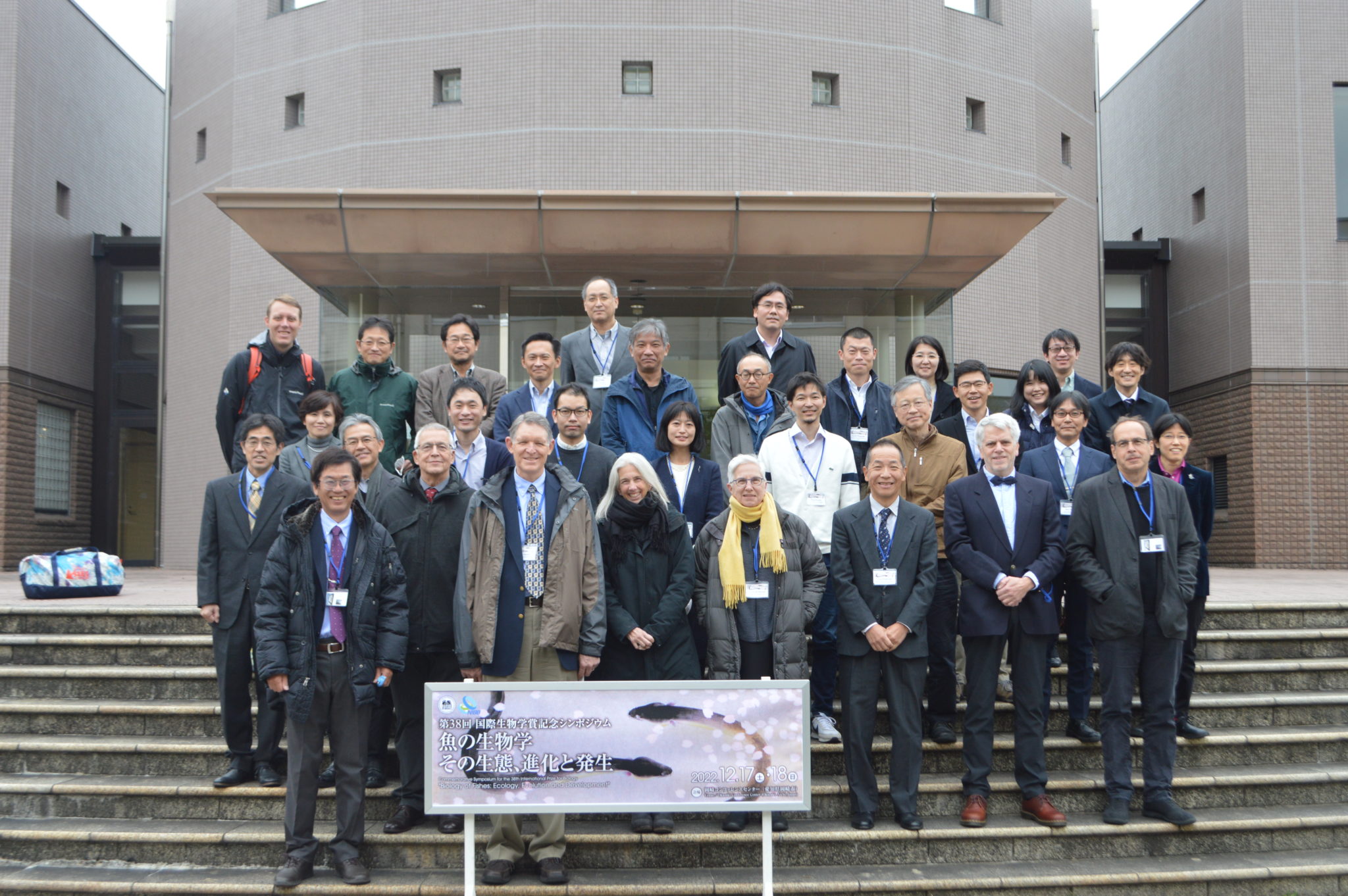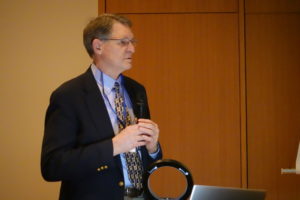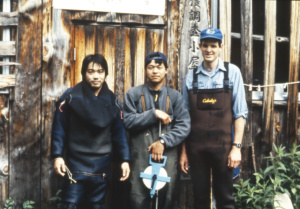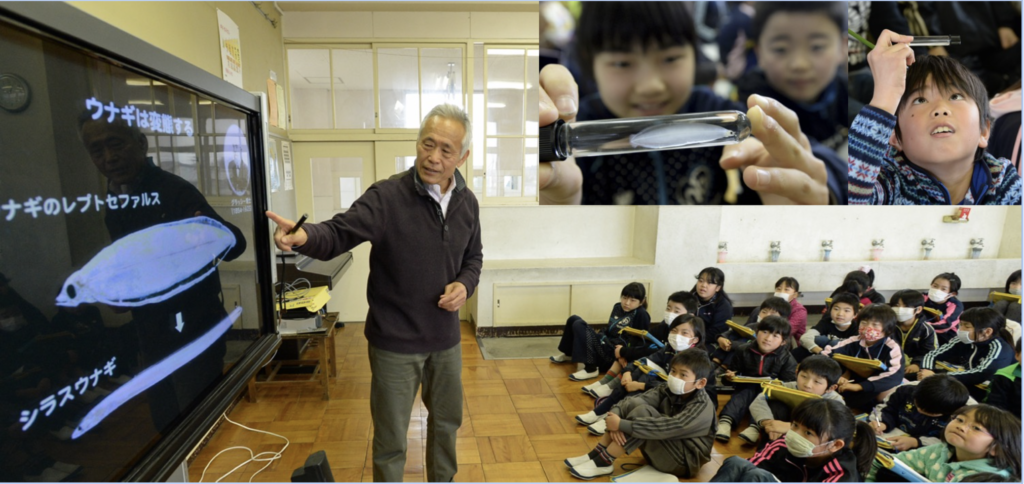
Kurt Fausch, professor emeritus in the Department of Fish, Wildlife, and Conservation Biology is no stranger to traveling to Japan. His work as a fish biologist brought him across the Pacific Ocean 20 times in the past 35 years, with his first trip to the 1988 Charr Symposium in Sapporo setting the stage for decades of in-depth research and collaboration. But his most recent trip in December 2022 is one Fausch will always remember.

Fausch was given the honor of speaking on behalf of a colleague and friend, Katsumi Tsukamoto, professor emeritus from the University of Tokyo. Tsukamoto was awarded the 38th International Prize for Biology on December 14, which was presented in the presence of Their Imperial Highnesses Crown Prince and Crown Princess Akishino.
The International Prize for Biology is an annual award that was first given in 1985 and commemorates the 60-year reign of Emperor Showa and his dedication to biological research. The award recognizes exceptional contributions to the advancement of research in fundamental biology and is recognized as one of the most prestigious prizes in natural science. The focus is different each year, including recent awards for research excellence in human evolution, paleontology, neurobiology, and ecology, to name a few. The research focus for 2022 was the biology of fishes.
Decades of Collaboration
Fausch was introduced to Tsukamoto in 1994 by a younger colleague, Shigeru Nakano. Fausch and Nakano met at the 1988 Charr Symposium in Sapporo. They discovered they had very similar research interests, and spent a decade collaborating on field research in the remote mountains of central Hokkaido and northwest Montana. On a trip in summer 1994, Nakano arranged for Fausch to give seminars at 10 universities and national laboratories across Japan. During the last seminar on his itinerary at Tokyo University, Fausch met Tsukamoto, whose research cruises in the western Pacific Ocean led to the discovery of the spawning sites of Japanese eels.

In March 2000, Nakano and four others were drowned in the Sea of Cortez off Baja California when their research vessel capsized in a violent storm. Fausch traveled back to Japan during the early 2000s to follow up on the research legacy that he and Nakano had started, and that work was chronicled in a PBS documentary titled, RiverWebs.
But it wasn’t until 2008, when Fausch traveled to the World Fisheries Congress in Yokohama to receive the first International Fisheries Science Prize that he and Tsukamoto crossed paths again. They reconnected again in 2019 when the International Fisheries Science Prize committee selected Tsukamoto from among the nominees to receive the prestigious prize, given only every four years. In his role as chair of the committee that year, Fausch called Tsukamoto to deliver the news that he’d been selected for the 2020 prize.
But it wasn’t long after that call that Fausch learned that Tsukamoto suffered a serious stroke, leaving him unable to move or speak. The global pandemic postponed the 2020 World Fisheries Congress until 2021, but Tsukamoto could not attend to receive the award.
The 38th International Prize for Biology
In spring 2022, Fausch was invited to help nominate Tsukamoto for the 38th International Prize for Biology. Tsukamoto’s prolific research in the biology and ecology of marine eels included more than 400 published research papers and 29 books/book chapters, along with an “Unagi (Eel) Caravan” that Tsukamoto personally used to present to 277 elementary schools throughout Japan, teaching children about the Japanese eel (unagi).

Fausch received the news that Tsukamoto had been awarded the 38th Prize for Biology in August and was invited to Japan in December for Tsukamoto’s award ceremony. Although Fausch was unable to visit Tsukamoto, who remains incapacitated from the stroke, Fausch presented research from his own laboratory at a two-day symposium in Nagoya along with talks by nine other world-renowned fish biologists and fishery scientists.
Back from his 20th research visit to Japan, Fausch is now preparing for his upcoming 21st trip, a trip that will bring his decades of work, friendships, and collaborations full circle. Thirty-five years after his first Charr Symposium, Fausch will be returning to Japan for the 2023 Charr Symposium in May, not as an attendee, but as the keynote speaker.